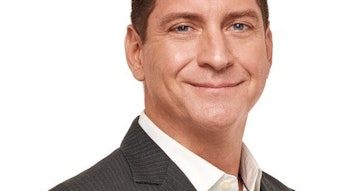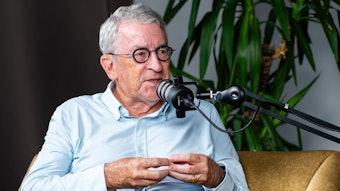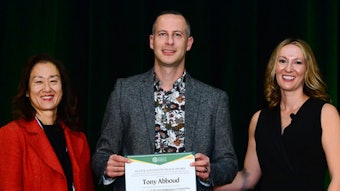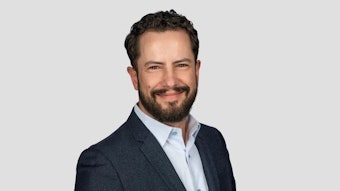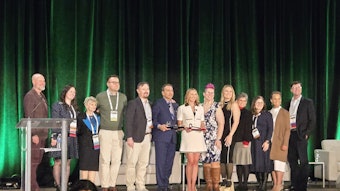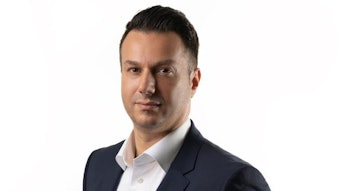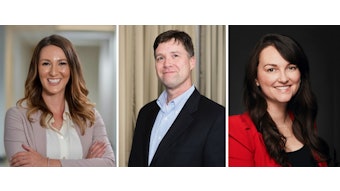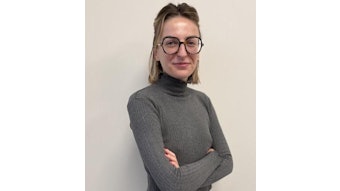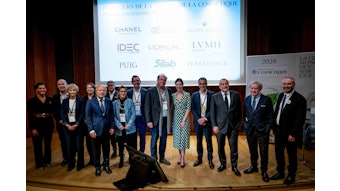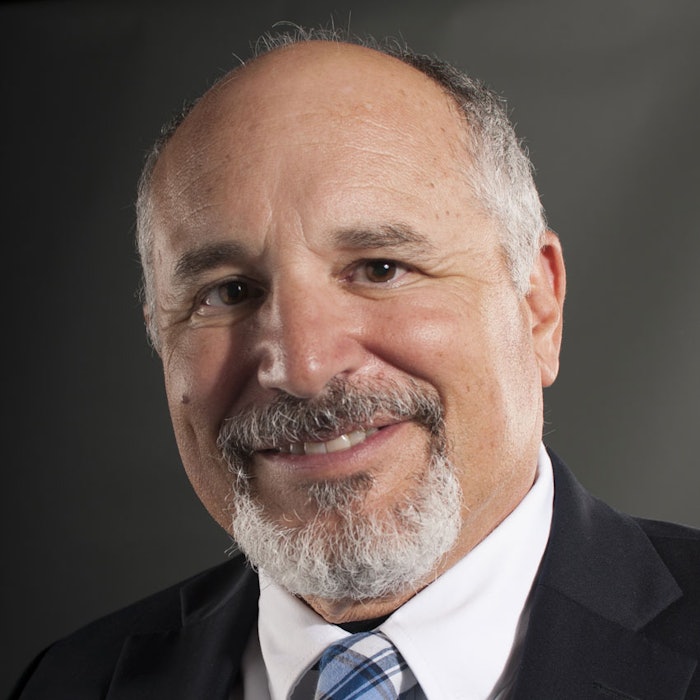
Joe Albanese (JA) has always loved the ocean. In high school, he never missed an episode of Jacques Cousteau on TV, and his high school guidance counselor even advised him to pursue a degree in marine biology because that was supposedly the up-and-coming field.
"Well it wasn’t," he told Cosmetics & Toiletries (C&T). "So, my course of study shifted. But not before I completed 'Ecology of a Coral Reef' at Fairleigh-Dickinson University's (FDU’s) campus in St. Croix, USVI, where I made two SCUBA dives a day and completed a paper on “Parasites of Marine Fishes.”
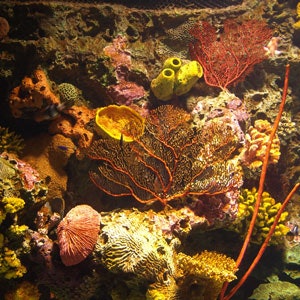 He continued diving for years and his articles and underwater photographs were published in both The American Littoral Society’s Underwater Naturalist and now-defunct N.J. Outdoors magazine.
He continued diving for years and his articles and underwater photographs were published in both The American Littoral Society’s Underwater Naturalist and now-defunct N.J. Outdoors magazine.He adds, "I remember learning about research on sunscreens produced by coral reefs to protect themselves from UV damage. . .Corals, which rely upon a symbiotic relationship with photosynthetic algae called Zooxanthellae, do [indeed] have a type of sunscreen. I tried to [travel] to the Great Barrier Reef to study this first-hand but Colgate wouldn’t allow it." (insert smiley emoticon)
C&T: How did you get started in cosmetic science?
JA: I’ll give my dad credit. He was once a chemical engineer working for Fritzsche, Dodge & Olcott that was acquired by BASF a long time ago. He suggested I apply for a job at Avon R&D in Suffern, NY.
My first industry-related job was as a technician in the Avon pilot plant. I only had a two-year science degree at the time. When I asked what I had to do to get a promotion, the chemical engineer told me, “When you can pour from a 55-gallon drum into a thimble and not spill a drop.”
If it hadn’t already registered in my brain, that was the moment I realized I wasn’t "going anywhere without that sheepskin,"—college degree, that is. So, I returned to college and set my sites on completing my bachelor of science in biology. At that point, I continued and received a master of arts degree in the cosmetic arts program at FDU.
C&T: Who were your mentors?
JA: All of my instructors from industry who taught at FDU [were mentors]: David Steinberg, Irwin Palefsky and the late/great Clarence Robbins, to name a few. Also, Phil Klepak, who was tough on me (on everybody! LOL)—and taught me much. At that time, his tough work ethic “encouraged” me to achieve more than I thought possible.
Of course, I also want to acknowledge my current employer, Dr. Ratan Chaudhuri, whose mastery of organic chemistry, skin biochemistry and entrepreneurial spirit launched Sytheon Ltd. After a career spent in hair care, he taught me much I didn’t know about the science of skin care and proteomic/genomic studies.
C&T: In your experience, how has the industry changed?
JA: With big companies acquiring smaller successful ones, there seem to be far fewer jobs available in the industry. It's been going on for a long time now but from the beginning, I always thought that if too many jobs go overseas, who is going to be earning money here in America to buy all the goods and services available?
It seemed like a very shorted-sighted strategy to grow shareholder value. I don’t care what some people contend, over-regulation is stifling creativity and hindering smaller companies who simply can’t afford the resources needed to get a head start.
Don’t waste years trying to be something you are not. I like the phrase, “Go where you are celebrated, not merely tolerated."
C&T: What advice can you give novice cosmetic scientists?
JA: When you first start out, it's acceptable to change jobs until you find what makes you happy. Employers rightfully frown on “job-hopping,” though, so at some point, one must mature, show loyalty and the ability to hang tough. However, don’t allow yourself to be complacent.
If you do not have the skillset or personality traits a particular company needs or wants—move on. Don’t waste years trying to be something you are not. I like the phrase, “Go where you are celebrated, not merely tolerated."
Never stop learning. Continue to network and become active in the SCC. Relations built there will last through job changes and possibly your entire career in industry. If you are lucky, some relations will become life-long friendships.
C&T: Can you share a success story or accomplishment you are most proud of?
JA: When you have been around as long as I have, there's better be a success story or two. I enjoyed learning and applying experimental design to optimize formulas by discovering synergistic interactions between ingredients. I initially used this at Colgate-Palmolive to optimize shampoo performance at a reduced cost.
Later, when working at ISP (now Ashland), I shared a U.S. patent, "Synergistic effect on viscosity between associative polymers," with Ray Rigoletto, who shared my passion for experimental design. I wrote articles on the subject for the NYSCC newsletter, Cosmetiscope, and I enjoyed teaching a class on design-of-experiments (DoE) for the SCC.
I am happy, through the suggestion and encouragement of Drs. Robert Bianchini and Janus Jachowicz, to have started the NYSCC’s Rheology Symposium, which was a huge success for a number of years. Acceptable rheological properties are a critical aspect of marketing success in cosmetics.
I also am proud of my service to the SCC and especially the New York Chapter. From first being appointed as an audio-visual aid, to being elected to chapter chair and then director of Area I. Recently, I was nominated as one of the society's first Marketing Fellows. Plus, I have been developing and teaching an SCC course on, “Good Manufacturing Practices for the Cosmetic Chemist” with my former Colgate-Palmolive colleague Susan Freije. It feels good to give back to the industry that provided my livelihood for decades now. Try it; you’ll like it.
I am also proud to have made a successful transition from the laboratory to sales/marketing. Becoming a successful salesperson is tough but speaking with customers working in product development is made easier by the many years I worked in the lab.
C&T: What is on the horizon for the industry?
JA: I don’t have a crystal ball but I believe things will begin to "normalize," meaning regulations, while necessary, will shift to be less onerous and more favorable to business success and employment opportunities will grow. Fingers crossed.
C&T: Anything else?
JA: There is now a company that apparently picked up on research that I recall started at the University of Australia. It has synthesized a UV filter to mimic what protects coral reefs. Could this technology provide additional solutions to the ban on certain sunscreens by Hawaii to protect coral reefs?
